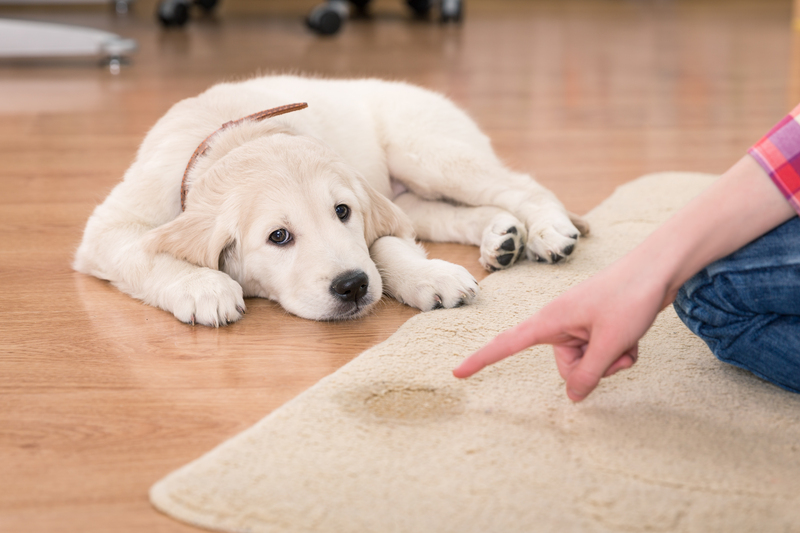Achieve a Fresher Home with Pet Odor Elimination
Posted on 06/10/2025
Achieve a Fresher Home with Pet Odor Elimination
Having pets brings joy, companionship, and countless precious moments. However, pet owners often face a common challenge: unwelcome pet odors. Whether you own cats, dogs, rabbits, or birds, keeping your home smelling fresh can feel like a never-ending battle. Luckily, with the right strategies for pet odor removal, you can ensure that your home remains an inviting, fresh haven for both your family and your furry friends.

Understanding the Source of Pet Odors
Before diving into solutions, it's essential to understand why and how pets contribute to household odors. The most common sources include:
- Pet fur and dander: As pets roam, their fur and tiny skin flakes (dander) settle on various surfaces, accumulating odors.
- Saliva and body oils: Dogs and cats, in particular, leave behind odors through their body oils and drool on furniture and floors.
- Accidents: Urine, feces, or vomit can soak into carpets, furniture, or hardwood, leading to persistent smells.
- Litter boxes and bedding: Regular use of these areas makes them prime spots for lingering pet smells.
Recognizing these sources helps you target your odor elimination efforts more effectively and achieve a fresher home with every step.
Effective Pet Odor Elimination Techniques
1. Prioritize Regular Cleaning
Routine cleaning is your best defense against pet-related odors. Here's how to tackle the most problematic areas:
- Vacuum frequently: Use a vacuum cleaner designed for pet hair--preferably one with a HEPA filter--to remove dander and fur from carpets, rugs, and upholstery.
- Mop hard floors: Use pet-safe cleaning solutions to mop floors and neutralize odors.
- Wash pet bedding weekly: Beds, blankets, and stuffed toys should be laundered in hot water to kill bacteria and eliminate smells.
- Disinfect litter boxes: Empty and clean litter boxes with mild, unscented soap and water. Replace old litter regularly.
2. Use Targeted Pet Odor Removal Products
There are a wide variety of products designed for removing pet odors from your home. Choose those that are effective and safe for both pets and humans:
- Enzymatic cleaners: These cleaners contain enzymes that break down organic matter, effectively neutralizing urine and feces odors at their source.
- Odor-neutralizing sprays: Look for sprays formulated specifically for pet odors rather than just masking the smell.
- Air purifiers: HEPA and activated carbon filters can trap fine particles and neutralize odors, keeping the indoor air fresher.
3. Manage Airflow and Humidity
Stagnant air can exacerbate pet odors. Improving ventilation and controlling humidity are crucial for a home that feels and smells cleaner:
- Open windows and doors: Regularly air out your home to let fresh air circulate and stale odors escape.
- Use fans and ventilation systems: Boost airflow in areas where your pets spend most of their time.
- Control humidity: High humidity encourages bacterial growth and intensifies odors. Use a dehumidifier to keep indoor humidity levels between 30-50%.
4. Tackle Specific Trouble Areas
- Carpet and rugs: Treat with enzymatic cleaners, followed by a thorough vacuum. Use baking soda as a natural deodorizer--sprinkle, let sit, then vacuum.
- Furniture and upholstery: Use pet-safe upholstery cleaners and, when possible, remove and wash cushion covers.
- Pet accidents: Act quickly! Blot liquids, clean with enzymatic solution, and avoid scrubbing--which can force odors deeper into fibers.
Natural Remedies for Pet Odor Elimination
Prefer a non-chemical approach? Many effective pet odor elimination techniques use everyday household items:
- Baking soda: As a natural deodorizer, it's perfect for carpets, rugs, and pet cushions.
- White vinegar: Mix with equal parts water in a spray bottle. Great for hard surfaces, but test on soft fabrics to avoid discoloration.
- Lemon juice: Known for its fresh scent and antibacterial benefits, it can be mixed with water to wipe down surfaces.
- Activated charcoal: Place bowls or bags of activated charcoal near litter boxes or pet areas to absorb lingering odors.
*Always check that home remedies are safe for use around your specific pets, as some substances (like essential oils) can be toxic to animals.*
How to Prevent Pet Odors Before They Start
Keep Your Pet Clean
Regular grooming and bathing are essential. Here's how to integrate these steps into your pet care routine:
- Brush regularly: Remove loose hair and dander that act as odor carriers.
- Bathe when necessary: Use gentle, pet-approved shampoos. Over-bathing can lead to skin issues, so follow your vet's recommendations.
- Ear and dental care: Foul smells can also come from infected ears or bad teeth. Periodic cleaning and veterinary check-ups help control these sources.
Set Up Proper Pet Areas
Dedicate specific zones in your home for pet activities. This helps contain mess and makes cleaning easier:
- Litter boxes: Place in well-ventilated, private areas, and use high-quality, odor-absorbing litter.
- Feeding stations: Use mats under bowls to catch spills and clean regularly.
- Sleeping and play areas: Invest in washable pet beds and frequently clean toys and fabrics.
Train and Reinforce Good Habits
- House-training: Consistency is key when house-training a puppy or re-training an adult pet.
- Reward systems: Use positive reinforcement to encourage pets to use appropriate areas for relief and discourage marking or accidents inside.
- Prompt cleanup: Accidents are inevitable, but quick, thorough cleaning prevents odors from settling in.
Advanced Solutions for Persistent Pet Odors
If you've tried all conventional methods but still struggle with lingering smells, these solutions can offer relief:
Professional Cleaning Services
- Carpet and upholstery cleaning: Deep cleaning by professionals can extract embedded odors that regular vacuuming misses.
- HVAC cleaning: Pet hair and dander often accumulate in ductwork. Professional cleaning improves indoor air quality and reduces smells.
Ozone and Ionizing Machines
- Ozone generators: These break down odor molecules but should only be used when pets and people are not present, as ozone can be hazardous.
- Ionizers: These machines charge airborne particles, making them easier to filter. Look for models specifically advertised for pet odor elimination.
Replace or Clean Heavily Soiled Materials
- Remove and replace: Severely damaged carpets, baseboards, or drywall may need replacing if they harbor years of built-up odors.
- Use odor-sealing primers: For persistent smells from floors or walls, products like odor-blocking paints or sealers can help.
A Long-Term Approach to a Fresher Home
Achieving--and maintaining--a fresh-smelling home is not a one-time effort but a lifestyle commitment as a pet owner. Here are key takeaways for long-term success:
- Consistency is your friend: Regular cleaning, grooming, and odor prevention are all part of responsible pet ownership.
- Choose quality over quantity: Opt for well-reviewed products for pet odor removal and keep a few trusted remedies at hand.
- Stay proactive: Address spills, accidents, and problem spots as soon as they occur to prevent odors from embedding in your home.
- Monitor: Periodically review your home for problem areas--especially corners, under furniture, and near vents.

Frequently Asked Questions about Pet Odor Removal
How can I remove persistent pet urine smell from my carpet?
The best approach is to use an enzymatic cleaner specifically formulated for pet stains. These break down urine at a molecular level. Generously apply the cleaner, let it sit according to instructions, blot up excess liquid, and repeat if necessary. Avoid steam cleaning before neutralizing the odor, as heat can set protein-based stains.
Are air fresheners safe for pets?
Some air fresheners contain chemicals or essential oils that can be harmful to pets. Opt for pet-safe odor neutralizers or natural options like baking soda or activated charcoal. Always read labels and consult your veterinarian if unsure.
Is it possible to completely eliminate pet odors?
While you may never achieve a 100% odor-free home as a pet owner, combining regular cleaning, grooming, targeted products, and quick action after accidents will keep your living space smelling fresh and welcoming.
Conclusion: Enjoy a Fresher, Happier Home with Effective Pet Odor Elimination
Pets are family, and with the right habits and products, you don't have to choose between a happy home and a fresh-smelling space. By understanding odor sources, employing effective pet odor removal strategies, and embracing a proactive approach, you can achieve a fresher home with pet odor elimination. Invest in your environment, and you'll enjoy the companionship of your beloved animals without the stress of stubborn smells. Your home can be a place of comfort, joy, and freshness for everyone--two-legged and four-legged alike!





